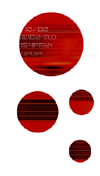

 |
 |
scientific program electroacoustic musics around set theory music analysis tools musicnetwork workshop professional week ircam forum workshops free software for music international multichannel sound forum performing arts and technologies dance and new technologies access to sound heritage thematic evenings demonstration stands artistic program set theory concert music in creation concert cursus concerts opera "one" sound installations open house weekend technologies gallery conferences demonstrations workshop-performances workshops and films ircam laboratories linux install-party concert distribution on internet associated events resonances night at glaz'art émilie simon at la cigale suguru goto reseaunances guided tours of ircam and the multimedia library resonances in pictures resonances 2002 
|
REAL TIME APPLICATIONSActivitiesThe Real Time application Team conducts research and development based on computer techniques for interaction and real time processing of musical and sound information. This work, oriented towards musical creation, also has applications for audio and multimedia in larger contexts (in the sectors of pedagogy or industry, for example). Musical works which incorporate both instrumental and electronic parts in an interactive situation have interested composers for a long time. Computer calculations of sound samples for synthesis in real time (in other words, "live") necessitate powerful systems, which in turn has long necessitated heavy, custom-made systems. After the first generations of real time machines (4X), which were developped at the end of the 70s by Pepino DiGiugno at IRCAM, a new equipment and software architechture was developed at the beginning of the 90s by the musical information station led by Eric Lindemann. This computer music station (SIM), based on NeXT computers and including cards designed for sound processing, was widely used in concert situations. Its primary software components were the real time FTS (Faster Than Sound) executor, which controls signal processing, and the Max graphic programming environment, developed by Miller Puckette. The Max software adapted for Macintosh was commercialised by Opcode, and over 5000 copies were distributed all over the world. The performance of works which use these systems raises the problem of the availability or obsolescence of equipment. During last years, Ircam focussed its activities on the production of a purely software solution. This gave rise to jMax, a free software which is a new portable version of the Max environment. jMax constitutes an open architecture which permits the development of applications in various contexts : musical creation (score tracking project, Spatialisateur software, etc.) ; research projects (the LISTEN, the PHASE projects), or industrial applications such as automobile or submarine simulations. Main projects
Areas of ExpertiseReal time, Linux, Java, C, Max, interactivity, signal processing. Team Members
CollaborationsApple, Fraunhofer Institute for Media Communication - Competence Center Virtual Environments, Genesis, GMD, University of North Texas. |
|||||||||||||||||||||||||||||||
 |
Organization Committee Copyright Ircam-Centre Pompidou 2003 |